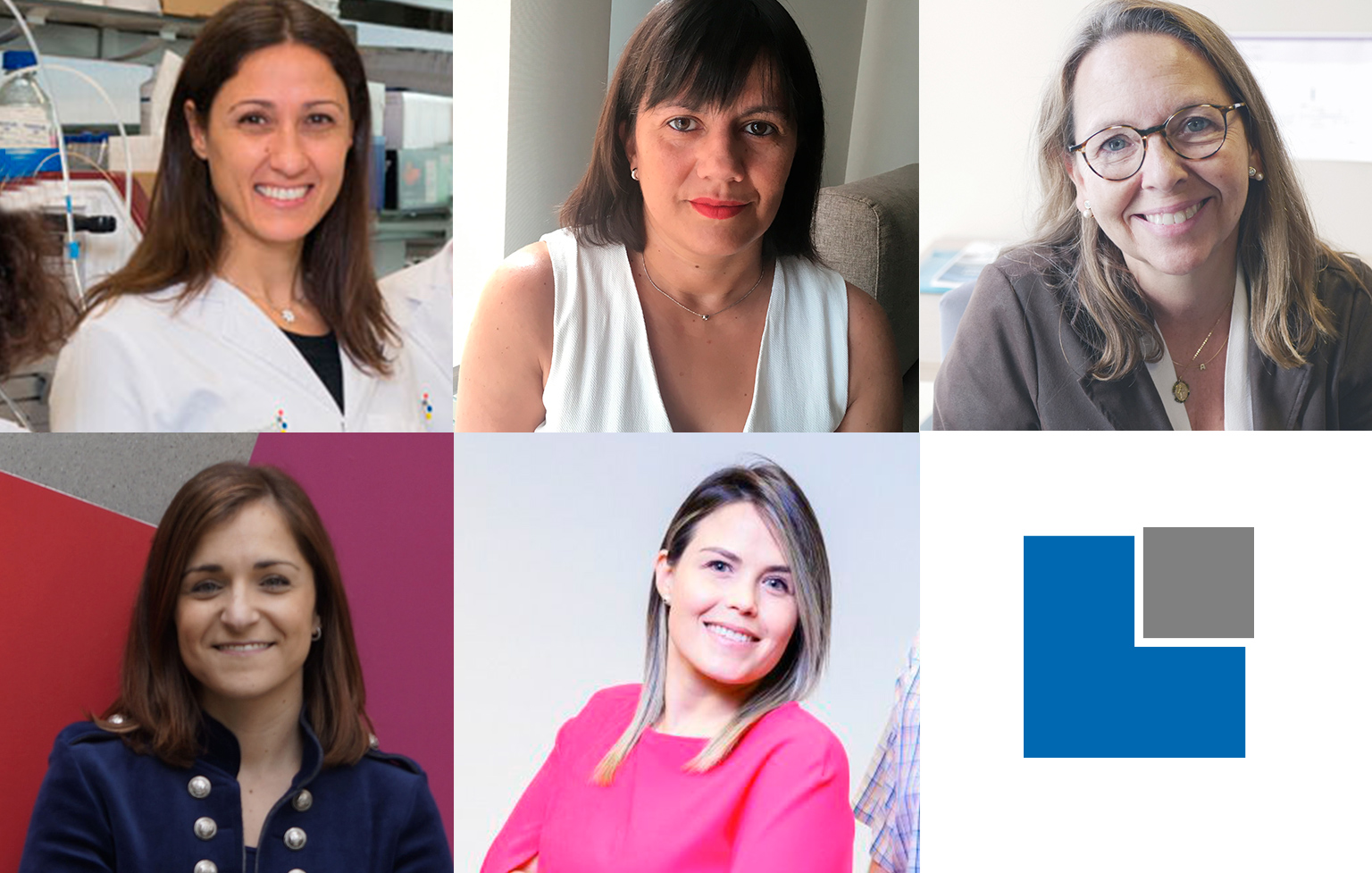11 Feb Enterprising women: an example to encourage girls in scientific careers

Barcelona, 11 February 2021.- There are various reasons why women are not reaching leading positions in science, but one important factor is the lack of role models giving them incentives in their careers. Since 2016, the International Day of Women and Girls in Science has been held on 11 February, a date set by the United Nations’ General Assembly to promote access, empowerment and the full, equal participation of women and girls in science. At Genesis Biomed, we share this vision of science as fully egalitarian for both women and men. Fortunately, we see that women are increasingly occupying more senior positions in the projects we work with, which is why we want to boost their visibility and recognition today. Below, we present five women CEOs leading some of the projects we work with:
- Laura Soucek – Peptomyc: Laura is an outstanding figure in the field of Myc and has pioneered studies on MYC inhibition since she designed Omomyc when she was still an undergraduate student. Laura Soucek has published in the main scientific journals. She has been rewarded with various prizes and competitive grant awards. Since the beginning of 2011, she has run the Mouse Models of Cancer Therapies research group at the Vall d’Hebron Institute of Oncology (VHIO) in Barcelona. In December 2014 she cofounded Peptomyc SL, a spin-offfrom the Vall d’Hebron Institute of Oncology (VHIO) and the Catalan Institute of Research and Advanced Studies (ICREA), of which she is CEO. Peptomyc focuses on developing a new generation of cell-penetrating peptides (CPP) for cancer treatment directed at the oncoprotein Myc.
- Marta Barrachina – ADmit Therapeutics: She is a specialist in gene regulation and epigenetics in neurodegenerative and neurological diseases, such as Alzheimer’s disease, Parkinson’s disease, Huntington’s disease and schizophrenia, and she is author of many scientific articles published in international neuroscience journals, leading various competitive public and private projects over the last 14 years. Marta Barrachina is CEO of ADmit Therapeutics, SL, a spin-off from the Bellvitge Institute of Biomedical Research (IDIBELL), focusing on the development and commercialisation of a new technology for the early detection of Alzheimer’s disease.
- Agnès Arbat – Oxolife: Agnès has great experience in the pharmaceutical industry, leading medical teams in the area of women’s health and cardiovascular therapy. She has published various indexed articles in international journals, contributing with many papers at congresses and leading more than 20 clinical trials in the area of women’s health. She has been responsible for the clinical development and management of Oxolife since its foundation in 2013. The company is developing a drug in a specific field where none has yet been successful: acting directly on the endometrium to improve embryo implantation and increase the birth rate.
- Judit Cubedo – GlyCardial Diagnostics: She has sound experience in the discovery of biological markers acquired over more than a decade carrying out various lines of research in proteomic studies, biological marker validation studies and the characterisation of post-translational modifications of proteins to identify new cardiovascular biological risk markers and their clinical manifestations. She has published in many high-impact scientific journals. During her final years in academic research, her work was aimed at developing immune trials to detect new potential biomarkers of cardiovascular diseases with the potential for transfer and commercialisation. She is currently CEO of GlyCardial Diagnostics, a spin-off from the Santa Creu and Sant Pau Hospital Research Institute and the Spanish Higher Council of Scientific Research (CSIC) focused on developing an innovative in vitro diagnosis device for myocardial ischaemia. The technology is based on detecting Apo J-Glyc in blood as a biological marker for the early diagnosis of cardiac ischaemia and predicting the patient’s evolution after an ischaemic event.
- Gabriela Jiménez – Angiotheragnostics: With training in biomedicine and the pharmaceutical industry, Gabriela is the CEO of Angiotheragnostics, a project from the Bellvitge Institute of Biomedical Research (IDIBELL) and the Catalan Institute of Oncology (ICO) focusing on developing new types of drugs and biological markers to prevent cancer from resisting treatment. Angiotheragnostics is developing a new drug to prevent resistance to anti-angiogenic treatments, which has become a clinical problem for cancer patients, as well as a biological marker for selecting patients to identify those who would benefit from this treatment.


